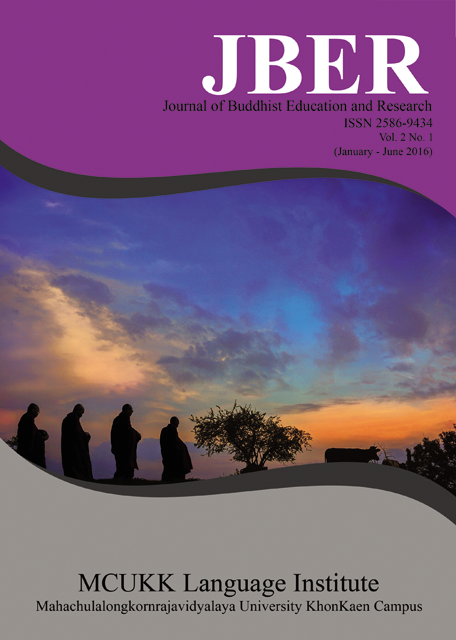The Interpretation Of Paticcasamuppãda According To Buddhadãsa Bhikkhu 'S Views.
Keywords:
Interpretation Paticcasamuppada, Focus of Paticcasamuppada.Abstract
The objective of this research is to study the interpretation it in the Tripitaka, the Visuddhimagga and Interpretation itaccording to Buddhadasa Bhikkhu’s Views. This is a subjective interpretation of religious principles that can lead to knowledge in practice in order to disengagement and so happy today.
The st udy found that the meaning of the Paticcasamuppada in Tripitakaand Visuddhimagga.As the laws that with the advent and the possibility of all that life fall naturally by demonstrating relevant things that appeal to each other occurs. So, that Interpretation of the main aims of it according to Buddhadasa Bhikkhu’s Viewsas it mentioned the Idappaccayata. It’s contrary to the teaching and understanding of the world, straddling across therebirth. According to many people understood, it has taught the math here is exactly the same, only this. To destroy Sassatavada Appears in the form of the Four Noble Truths Both are generally known. With such a diehard following and other issues. which relation and Interpretation aspects especially a concept that all beings follow it. However, there are some different details which are not main concepts in Tipitaka and Visuddhimagga.





